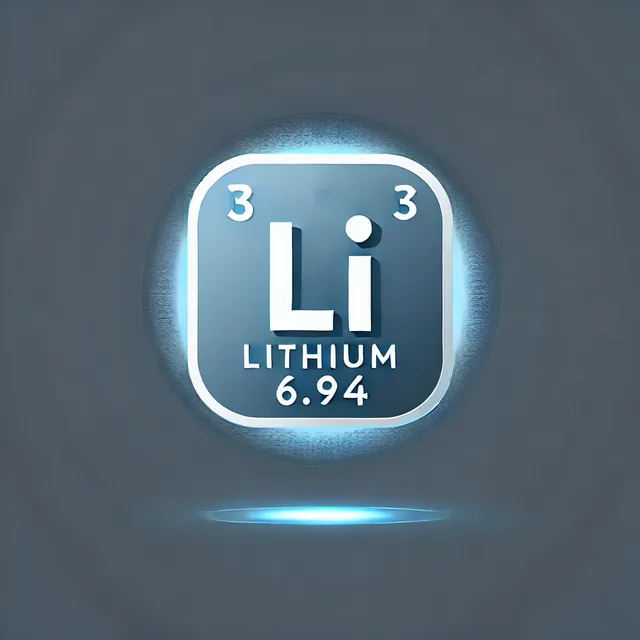The newest microdose for mental wellness?
Lithium Microdosing: The Fountain of Youth in a Modern Age?
Throughout history, people have searched for the fountain of youth, that elusive source of vitality, longevity, and mental clarity. Legends speak of ancient healing waters imbued with mysterious life-extending properties. But what if one of those key ingredients was hiding in plain sight all along—lithium?
A Forgotten Elixir?
The idea of lithium as a wellness supplement is not new. In fact, some of the most famous mineral springs—once sought after for their rejuvenating effects—contained natural traces of lithium. These healing waters, once revered by ancient cultures, may have unknowingly provided microdoses of this essential element, offering subtle but profound benefits to those who drank from them.
One example? Lithia Springs in Georgia, USA, was once famous for its supposed life-enhancing properties, attracting visitors from around the country. The reason? High lithium content. Some speculate that these lithium-rich waters played a role in better mood regulation, cognitive function, and even longevity among those who consumed them regularly.
And let’s not forget a wild detail from history—Lithium was once in soft drinks! In 1929, a soda called "Bib-Label Lithiated Lemon-Lime Soda" hit the market, which later became 7-Up. The drink contained lithium citrate, supposedly giving it a mood-lifting effect. Though lithium was removed from sodas in 1950, its effects on well-being weren’t forgotten.
Lithium Microdosing: A Modern Take on Ancient Wisdom
Today, lithium is most commonly associated with high-dose pharmaceutical treatments for bipolar disorder. However, cutting-edge research is revealing that low-dose lithium (microdosing) may have profound neuroprotective and anti-aging benefits—without the side effects of high doses.
The Science Behind Lithium Microdosing
- Neuroprotection & Brain Health
Low-dose lithium has been found to protect neurons, enhance cognitive function, and even promote neurogenesis (the growth of new brain cells).
Research suggests it may help prevent or slow Alzheimer’s disease and other neurodegenerative conditions by reducing inflammation and beta-amyloid plaque buildup in the brain.
- Mood & Mental Well-Being
Studies show that even small amounts of lithium in drinking water are linked to lower suicide rates and improved mental resilience.
Lithium enhances serotonin, dopamine, and GABA, which help regulate mood, reduce anxiety, and improve emotional stability.
- Longevity & Anti-Aging Effects
One of the most exciting findings? Lithium microdosing may extend lifespan.
In animal studies, low-dose lithium supplementation increased lifespan by up to 16%, likely due to its effects on cellular repair, mitochondrial health, and stress resistance.
It also helps reduce oxidative stress, a key driver of aging.
- Gut Health & Inflammation Reduction
Lithium has been shown to balance gut microbiota, reducing harmful bacteria while promoting the growth of beneficial strains.
This contributes to a stronger immune system, reduced inflammation, and improved overall health.
- Hormonal Balance & Metabolic Benefits
Some research suggests lithium can help regulate blood sugar levels, support thyroid function, and reduce stress-related cortisol spikes.
Are We Missing an Ancient Key to Longevity?
If history teaches us anything, it’s that ancient wisdom often holds clues to modern health breakthroughs. The fact that lithium was naturally present in the so-called fountains of youth—and now is being rediscovered in the biohacking and longevity communities—suggests that our ancestors may have unknowingly benefited from its subtle, yet profound effects.
With new studies surfacing, many researchers believe lithium microdosing could be one of the simplest, most affordable ways to boost brain health, enhance mood, and slow aging.
How to Microdose Lithium
If you’re curious about lithium microdosing, low-dose lithium orotate (1–5 mg per day) is commonly used as a supplement. Unlike pharmaceutical lithium, this form is readily available and considered safe for long-term use at microdose levels.
Final Thoughts
The idea that the fountain of youth may have had lithium in its bubbling waters is more than just poetic—it’s a hypothesis that science is starting to validate. From mood stability and neuroprotection to anti-aging and longevity, lithium microdosing is emerging as a powerful yet underappreciated tool for optimizing health.
Maybe it’s time we take a sip from the past and rediscover what our ancestors knew all along.
Would You Try Lithium Microdosing?
Let me know in the comments—have you experimented with low-dose lithium, or do you think this could be the next big breakthrough in longevity?
I am not a doctor and this is not medical advice of course we're just asking the hard questions of ourselves.
